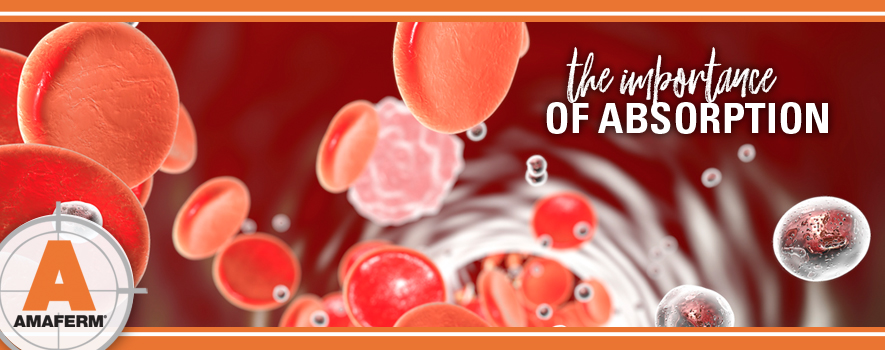
In animal health and nutrition, we often talk about improving or enhancing digestibility. Digestibility refers to the ability of the animal to break down large, insoluble feed into smaller, soluble molecules that can be absorbed into the blood. Good digestion is paramount to overall animal health, but, no matter how excellent the digestion process is, proper absorption is required for the animal to utilize the nutrients in the feed.
Because of this, absorptive capacity is arguably an important component of overall gut health or functionality. The ultimate desire for absorptive capacity is to have an unrestricted physiological ability to uptake water and nutrients. Uptake occurs either through active nutrient absorption or passive transport. The latter is especially important in the context of animal production as it does not require additional energy to be used for the absorption process, meaning more energy is available to meet the animal’s needs.
Over the past three years, BioZyme® has partnered with the Christian-Albrechts University in Kiel, Germany to study the impact of Amaferm®, one of BioZyme’s precision prebiotics, on absorptive capacity. In this research, the transport function of living intestinal tissue was quantified from animals fed Amaferm versus control animals. The results revealed that the passive transport (energy-independent transport) of nutrients was amplified in Amaferm-treated animals. The magnitude of the response was up to a 30% increase in the absorption of water and nutrients.
Taking a global view of gut functionality and its importance to animal health and production, multifaceted, all-natural feed additives are undeniably the new paradigm. Amaferm provides gut functionality via a multifactorial mechanism that involves increased digestibility, as well as an increased capacity for energy independent nutrient and water absorption. This gives animals the opportunity to perform to a high standard, no matter their purpose.
